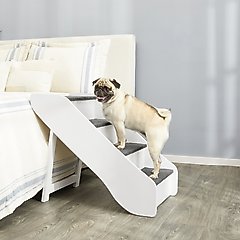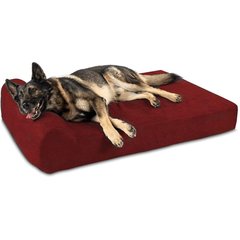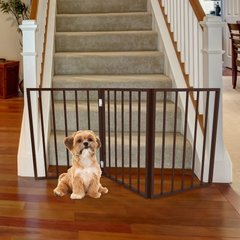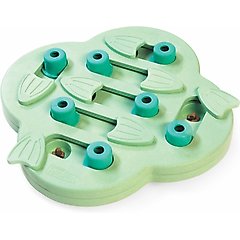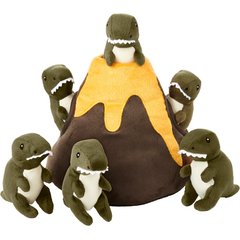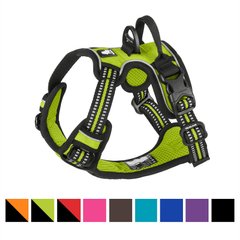9 Physical Changes To Expect in Your Senior Dog
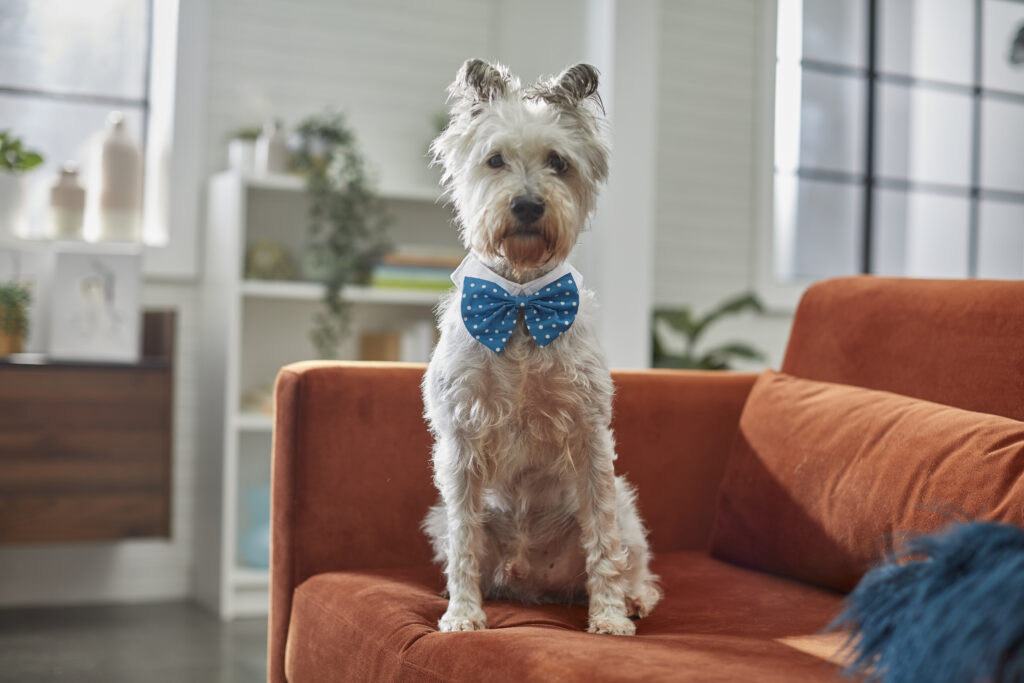
Photo by Chewy
What’s more rewarding than being a pet parent to a sweet senior dog?
Not much! But it can also be tough to see the changes that come with age. Here’s what to expect as your pup gets older, how to stay ahead of any issues, and how to help them age gracefully.
Key Takeaways
- Dogs become seniors at different ages, depending on size: For example, small breeds are seniors around 9–10 years, while giant breeds are seniors as early as 5–6 years.
- Common aging signs include slowing down, graying fur, dental issues, and changes in vision and hearing.
- Regular vet checkups are essential to catch issues like weight changes, lumps, or appetite loss early.
- Support your senior dog’s health with joint care, quality nutrition, dental hygiene, and mental enrichment.
When Is a Dog Considered a Senior?
A dog’s size plays the biggest role in determining when they hit senior status. Here’s the typical age at which your dog is considered a senior:
- Small dogs (under 20 pounds): 9–10 years old
- Medium dogs (20–50 pounds): 7–8 years old
- Large dogs (50–90 pounds): 6–7 years old
- Giant dogs (over 90 pounds): 5–6 years old
If you find yourself asking “How old is a senior dog?”, think of it this way: A Yorkie is typically not considered a senior until age 9–10, while a German Shepherd might be a senior legend at age 7.
Physical Changes To Expect in a Senior Dog
As your dog enters their golden years, expect some changes. Here are the most common ones:
- Graying or thinning fur: Senior dogs get gray hair, usually on the face and muzzle. Some older dogs will develop thinner fur, more brittle fur, or lighter or darker fur.
- Skin changes: Older pups are at increased risk for abnormal lumps and bumps on their skin due to lipomas, skin tags, or cancer.
- Weight gain: You may notice weight gain from slowed metabolism or low thyroid hormone, causing the formation of fat deposits over the hips or neck, or muscle loss.
- Weight loss: Some dogs may thin as they age due to the progressive loss of lean muscle mass. This muscle loss is most obvious around their backside and in their face.
- Dental issues: Senior dogs are more likely to have plaque and tartar buildup that requires a vet visit, and pet parents may notice a bit of stinky breath too. Over time, dogs may also wear down their teeth from chewing.
- Walking more slowly or sleeping more: Older dogs may walk more slowly or take more naps during the day due to lower energy levels. They may also have stiffer joints, or other health issues like osteoarthritis, which may include a stiffer gait, difficulty getting up, and a reluctance to jump.
- Vision changes: Most older dogs develop cloudy eyes due to lenticular sclerosis, a normal change that causes thickening of the lens. Older dogs may also experience vision loss.
- Hearing loss: Just like humans, aging can cause hearing loss in our dogs too.
- Behavioral changes: It’s possible for older pups to experience canine cognitive dysfunction, which may include barking or howling at nothing, peeing in the house, forgetting the location of things, or pacing, especially at night.
- Tummy troubles: Senior dogs may experience more digestive issues, like diarrhea or constipation, as well as changes in stool quality or lack of appetite.
When To See a Veterinarian
Many changes are expected in senior dogs—they are, after all, living out their golden years. However, if you notice anything alarming, call your vet.
Here are some symptoms that require a vet visit:
- Sudden weight loss or gain that seems unexplained
- Collapsing, severe weakness, or inability to stand
- Increased thirst or urination
- Ongoing cough or labored breathing
- Unexplained lumps or bumps on the skin
- Severe bad breath, loose teeth, difficulty eating, dropping food, or excessive drooling
- Sudden vision loss
- Seizures
- Loss of appetite longer than one day
- Vomiting or diarrhea
- Confusion, pacing, nighttime restlessness, or other symptoms of canine cognitive dysfunction
How To Keep Your Senior Dog Healthy
Getting older is inevitable, but there are several ways to help your dog stay healthy and comfortable.
Proactively Support Your Dog’s Joints
Osteoarthritis is common in older dogs. Minimize your dog’s risk by making sure they have a regular exercise routine, maintain a healthy weight, and take a joint supplement. Your vet can help you determine the best supplement based on your dog’s health. Some common vet favorites include:
Recommended Products
Omegas are also great for the joints, as well as the skin, heart, and brain.
Recommended Product
Put ramps or stairs around the house, which will make it easier to get on the couch or bed. Frisco Deluxe Carpeted Cat & Dog Stairs are sturdy, safe, and a real back-saver for pups with sore hips.
Recommended Product
Keep Your Dog Comfortable
A supportive, orthopedic bed—like Big Barker beds—will cushion their joints and encourage better sleep.
Recommended Product
Also consider adding nonslip rugs to slick floors, blocking stairs with dog gates, and using night lights to help dogs with reduced vision navigate after dark.
Recommended Product
Keep Teeth Healthy
Dental issues are more than just bad breath—they can affect heart health too.
Brush your dog’s teeth daily with a special toothpaste, like Virbac C.E.T. Enzymatic Dog Toothpaste, and make sure your pup’s teeth are examined by a vet annually.
Recommended Product
Make Mealtime High-Quality
Senior dogs have different dietary needs than younger dogs. They’ll benefit from calorie control, antioxidants, and highly digestible dog foods. Look for senior-specific foods like Hill’s Science Diet Senior Adult 7+ Chicken, Rice, and Barley Recipe.
Recommended Product
If your dog has a sensitive stomach, consider giving them a daily probiotic like Purina Pro Plan FortiFlora to support healthy digestion.
Recommended Product
Stimulate Your Dog’s Mind
Senior dogs may not want an hour-long fetch session, but they still need daily enrichment. Food puzzles and interactive toys keep their brains working.
This Nina Ottosson by Outward Hound Dog Hide N Slide dog toy allows them to search for hidden treats at their own pace, while this Frisco Volcano & Dinosaurs Hide & Seek Puzzle dog toy lets them retrieve plushies.
Recommended Products
Even going for a walk to sniff helps keep their mind engaged and sharp. Choose a harness that fits comfortably around your senior pup’s torso so a leash doesn’t tug at their neck.
Recommended Products
FAQs About Senior Dogs
How old is a senior dog?
Small dogs are usually seniors around 9–10 years, medium dogs around 7–8 years old, large dogs around 6–7 years old, and giant breeds as early as 5 years old.
At what age do dogs start feeling old?
It depends, but giant breeds can show signs of aging as early as age 5, while small breeds often stay spry until age 9 or later.
Do senior dogs have more anxiety?
Sometimes. Loss of vision or hearing can make dogs feel uncertain and give them anxiety. Cognitive decline can also cause pacing, restlessness, or nighttime anxiety.



